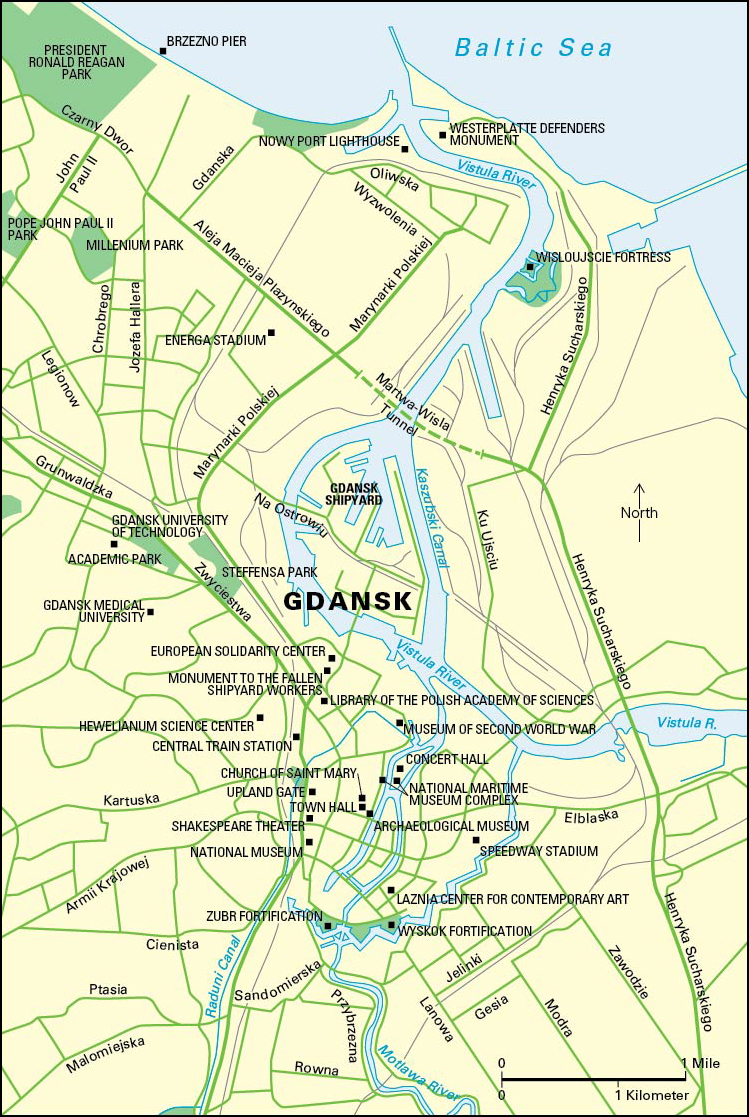Gdansk, << guh DAHNSK >> (pop. 486,022), is a Polish port city 4 miles (6 kilometers) from the Baltic Sea. It lies on the Vistula River, Poland’s chief waterway. Its location has made the city one of the leading ports of central Europe. In German, the city is called Danzig << DAN sihg >>.

Gdansk is rich in historical buildings of many styles. One of the best known is the Church of Saint Mary, originally built in the 1300’s. Another famous building is the Gothic town hall. Gdansk serves as the leading cultural center of northern Poland. The University of Gdansk was founded in 1970. Factories in Gdansk make chemicals, electrical equipment, food products, machinery, metal products, and textiles.
The Slavs founded Gdansk in the 900’s. It became a rich trading center of the German Hanseatic League during the Middle Ages (see Hanseatic League). It became a vassal city of the Polish king in 1466 but had complete self-government. When Russia and Prussia divided Poland in 1793, Gdansk fell into Prussian hands, and lost much of its wealth.
After World War I (1914-1918), Gdansk became a free city under the supervision of the League of Nations. It covered 754 square miles (1,952 square kilometers) and had a population of 415,000. Poland controlled the city’s communications and railroads, and the collection of customs duties. Gdansk had its own assembly, and was supervised by a commissioner who represented the League of Nations (see Polish Corridor).
In 1939, the Germans demanded that Gdansk be united with Germany, but Poland refused. Germany invaded Poland in 1939, and Gdansk fell into German hands. Bombs seriously damaged Gdansk during World War II. After the war, the city became part of Poland, and the damaged areas were rebuilt. In 1970, Gdansk was a center of protest against the Communist government in Poland. In 1980, strikes in Gdansk and other cities led to the creation of Solidarity, an organization of trade unions. Solidarity helped bring about free elections in Poland and the establishment of a non-Communist government (see Poland (Antigovernment protests)).
